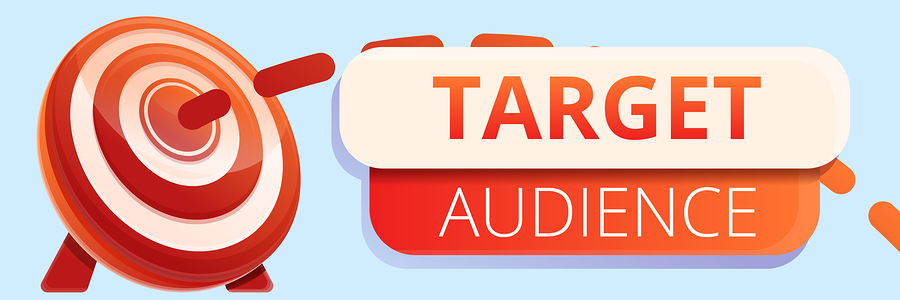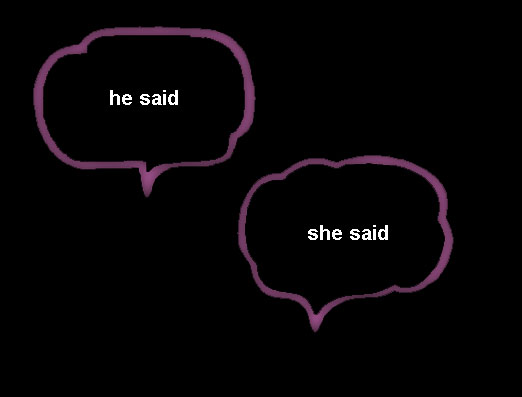A critical part of writing a good book—and a good pitch or proposal for a book—is defining your book’s audience.
We all know, of course, that you shouldn’t try to write a book “for everyone.” But your book’s audience can be an elusive target. I suggest three distinct and mutually exclusive phases for the process, which apply primarily to nonfiction but could also be kept in mind for various forms of fiction.
Define your reader clearly, specifically, even singularly, as you write. When I was an editor of a teen magazine (back when teens were mostly concerned with fighting off dinosaurs and getting their own room in the family cave), I kept two school snapshots taped to either side of my computer monitor. Both were kids who had attended the church I had pastored before taking on the editorial position. One was a fifteen-year-old white, lower-middle-class girl, and the other was a sixteen-year-old African-American boy from an upper middle-class family. They were my audience. Everything in that magazine had to pass their test, so to speak.
Broaden your audience as you revise. Just as you shouldn’t write a book for “everyone,” however, you shouldn’t write only for “Josephine.” So, give thought, perhaps in the writing but also in the revision process, to the broader audience to which you hope your book will appeal. This is an art, not a science, as you want your target to be as specific and as broad as possible. Say what? I know, I know. That’s why I say it’s an art. So, for example, a target audience of “middle-aged Christian mothers of young children suffering from Guillain-Barré Syndrome” is pretty specific; but it doesn’t seem likely to sell a lot of books. On the other hand, a target audience of “people dealing with diseases” is too broad, too general. See what I mean? It might help in the rewriting and pitching process to identify a target audience of “parents of children with chronic health issues.” That may not be the best example, but it shows how the thought process should go.
Keep “gatekeepers” in mind when you pitch. These phases overlap, obviously, but part of the process that is often overlooked is the fact that your book’s reader isn’t always the person who buys the book. When I teach workshops on writing nonfiction books, one of the first exercises I assign is to identify the person or people who “pick up/buy/read” the envisioned book. Sometimes that’s three different people. For example, a youth pastor and his wife enter a Christian bookstore. He goes straight to the pastors section (because he plans to be a senior pastor soon), and she goes to the youth section. She sees my book on the shelf and picks it up. She takes it to her husband: “Snookums, what do you think about giving this to the youth group as Christmas presents?” He takes it to the register, asks for fifteen more copies, and pays for them. But the book isn’t written primarily for the youth pastor or his wife, of course, but for the teens who will unwrap it at the youth group Christmas party. So, one person picked it up, another bought it, and a third person read it. The first two were the “gatekeepers”; and someone who writes for audiences such as children, youth, and (to a lesser extent, or so we hope) Christian men, should keep in mind that the book’s premise and presentation must appeal not only to the reader but also to the picker-upper and buyer—the “gatekeeper.”
Not everyone calls a spouse “Snookums,” and most people should buy more than sixteen copies of my book, but you get the idea. Defining your book’s audience takes some thought, but is a necessary part of the writing, revising, and pitching process.





Bob,
Thank you for these insights about audience. Having a defined audience is one of the ways for writers to make their pitch or submission stand out from others. From my experience looking at submissions, this area is a common area that gets missed–but is important for selling the book to the publisher, then the sales team will use to get it into the bookstore, then the bookstore owner will use audience to place the book inside the bookstore and much more.
Terry
Get the 11th Publishing Myth FREE Ebook
Point one, check. Point two, check. Point three . . . hmmm. Gatekeepers? Who would buy my book to pass on to someone else (who is included under point two)? Who would buy my book as a Christmas present? As a home-school reading assignment? As a book-club read? As a suggestion in the church newsletter? Thank you, Bob, for giving a name to folks who have been tucked into the back corners of my head, for bringing them front and center for a few moments. How do I reach out to them?
I have an imaginary reading audience of specific people I write to–the center of my target. There’s a broader circle these imaginary folks represent–the first circle around the target center. The gatekeepers are a bigger circle around them. Ready, aim, write!
My book is for the dying,
to help them splice some hope
when they find their faith is fraying
to a weak unstranded hope.
My book is for the helpmate
whose sad and bitter lot
is to watch a grim unfolding fate
in a place that God forgot.
My book is for the family
who helplessly stand by
in the loom of God’s eternity
when a beloved’s end is nigh.
My book is for this living land
to try to help them understand.
Line 4, ‘to a weak unstranded rope’
Sometimes my attention to detail is hopeless.
I initially tried to write a “Christian book that will appeal to everyone,” and even had a non-Christian editor go through it, and highlight the parts where she lost me because I assumed a higher degree of Bible knowledge. Now I think that what that edit did probably, at least partly, made me “dumb down” the book and over-explaining. I should have focused on a Christian audience from start, with a reasonable degree of previous Bible knowledge. She was a very good editor, though, and many of her comments helped me a lot.
As for gatekeepers, they are not only people who buy for others, but often also the agents, the publishers, the bookshop owners, the amazon algorithm. I have realized with time that I need to learn how they think, not only focus on my reading audience, but also on the various people with the power to put my book in the readers’ hands.
Of course, going indie is a modern way to try to “skip” those gatekeepers, but there are two great disadvantages there. The first is that the gatekeeper known as the online algorithm doesn’t go away. On the contrary, it becomes one of the most important gatekeepers. The second problem is that you’re adding another gatekeeper there. The bank account…
Great article today! Very insightful and a big help to me personally.
You helped me so much as a writer’s conference newbie with the same advice you just wrote. And when I was a college journalism major, our prof told us the same for newspaper writing. Thanks!
Your advice is really very helpful! You can feel your reader, and you understand what thy want to hear from you, and that`s really great! I have always issues with it, and writing is not my strong point. I often use help when need to prepare some paper.